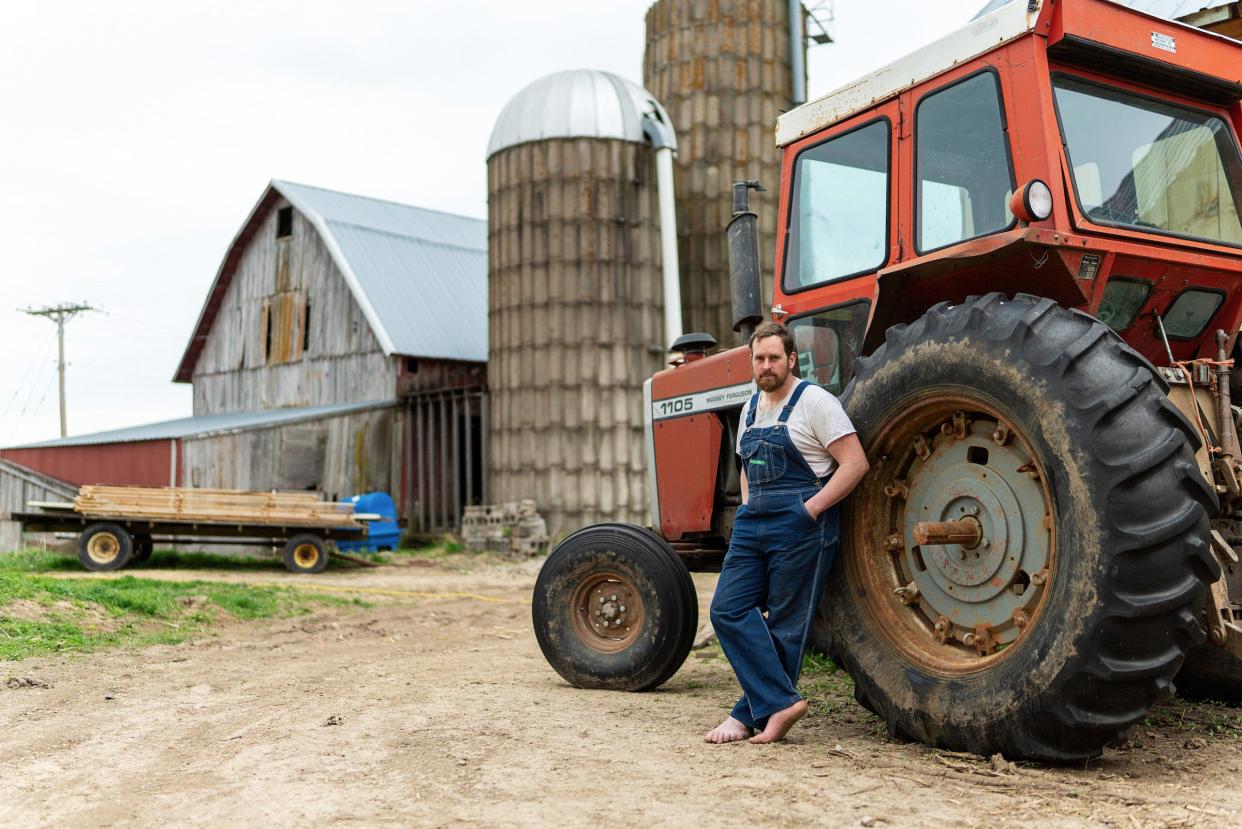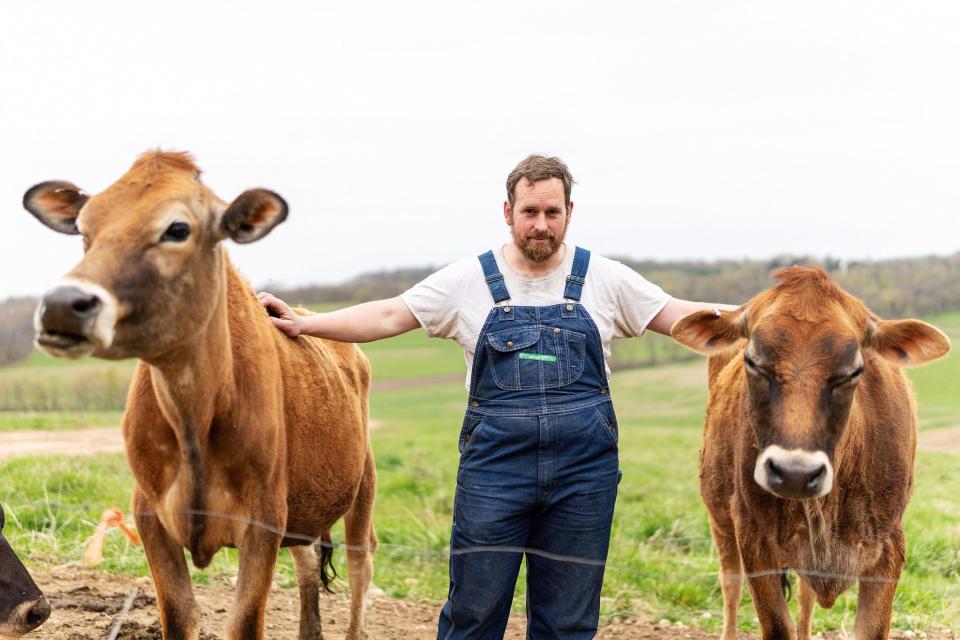Joe Biden's COVID debt relief for farms doesn't apply to white farmers. That's wrong.

Our government this year took another step toward creating division in our country under the guise of trying to solve it. The American Rescue Plan Act of 2021 (ARPA), more commonly referred to as the COVID-19 relief bill, plans to forgive loans from the government that were made to “socially disadvantaged” farmers as one of its many provisions. This may initially sound like disadvantage caused by the pandemic. “Socially disadvantaged,” however, is based solely and explicitly on race.
To be eligible for debt relief under the ARPA, a farmer must be Black or African American, American Indian or Alaskan Native, Hispanic or Latino, Asian or Pacific Islander. White farmers are not eligible. The federal government is looking to give away an estimated $4 billion in taxpayer dollars based on race.
So what does this provision have to do with COVID-19 relief? The answer is nothing. In fact, the idea drew from the Justice for Black Farmers Act that was reintroduced in the Senate in February. The pretext of that legislation is actually the settlement of lawsuits brought against the federal government in the late 1990s and early 2000s to rectify discrimination against Black farmers by the United States Department of Agriculture (USDA).
Secretary of Agriculture Tom Vilsack: Why debt relief for Black and minority farmers is major civil rights victory
The settlements were complicated and led to complaints that not every Black farmer who was entitled to relief got the opportunity to file claims. But this new legislation does not compensate only those farmers who were actually harmed. Under this much broader policy, if you have the right skin color and took out one of the eligible loans, you get your loan forgiven, plus 20%.
Race-based eligibility isn't COVID relief
But I, Christopher Baird, do not have the right skin color. I am white, like nearly 96% of the other people in Crawford County, Wisconsin, where I live and milk 50-60 jersey cows and farm about 80 acres. I have been farming here since 2014, when I took over from my father, who bought the farm in 1997. If the loan forgiveness provision in the ARPA was based on any other criteria than race, I would qualify to have almost $200,000 in federal loans forgiven, plus 20%.
It has been demonstrated that the government wronged Black farmers when approving loans in the past. Those individuals who were wronged are entitled to a fair settlement. There might even be an argument for making a monetary settlement to their immediate heirs.
There’s an argument for loan forgiveness for individuals, depending on individual circumstances or individual qualities. But making this broader eligibility based on race, simply the color of one’s skin, is not COVID-19 relief and it has no place in government. It is the very problem that it purports to be trying to fix. It’s using racism against prior racism. That’s not right. Most of us learned as young children the phrase “two wrongs don’t make a right”; it is truly disappointing that our leaders have forgotten such an elementary lesson.
Which is why the Wisconsin Institute for Law & Liberty, on behalf of a handful of affected farmers like myself, filed a federal lawsuit in April.

The Biden administration attempted a similar discriminatory policy with the Small Business Administration, allowing only applications for restaurant relief from women and people of color to be processed initially. The program was likely to run out of funds before it could consider white male applicants, who were explicitly moved to the back of the line because of their race. Thankfully, court rulings found that the Biden policy violated equal treatment of Americans under the law.
The courts should put an end to this discriminatory policy with farmers, too.
Unintended consequences
One of us is an African American lawyer and the other is a white farmer. We can say unequivocally that a provision in the law like this one, in the long run, does not benefit anyone. Attempts by government to solve social issues turn into failed efforts, making the problem worse because of the unintended consequences.
Farms, farmers are hit by pandemic: COVID-19 already toppled the income of farms, now it's spreading to rural residents
The USDA describes its general goal as ending "systemic discrimination." But such nonspecific goals don't override the constitutional ban on race discrimination. Loan forgiveness based on race will only create resentment and animosity among Americans and taxpayers of different races, and it will benefit only the legislators who gain political power by insisting that “help” is a good thing. Astonishingly, we continue to be almost completely unaware of this manipulation. If you want racism to survive, keep giving government the responsibility to solve it.

Americans can only be shamed for so long, and so this constant barrage of guilting Americans will become less effective over time. As badly as Americans are divided now, legislation like this, that purposefully divides Americans by race, will only make matters worse.
Shannon Whitworth is a Bradley Freedom Fellow at the Wisconsin Institute for Law & Liberty, and Christopher Baird is a farmer near Ferryville, Wisconsin, and a plaintiff in WILL’s lawsuit.
You can read diverse opinions from our Board of Contributors and other writers on the Opinion front page, on Twitter @usatodayopinion and in our daily Opinion newsletter. To respond to a column, submit a comment to letters@usatoday.com.
This article originally appeared on USA TODAY: COVID debt relief for farms, farmers shouldn't be based on race

